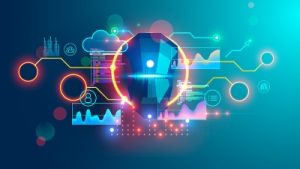12/16/2025 - Smart Start Breakfast Forum
12/16/2025 - Federal Zero Trust Forum
12/16/2025 - SAP Public Sector Summit 2025
12/16/2025 - The Future Belongs to Learners Series...
12/16/2025 - From Disconnected Systems to Unified...
12/16/2025 - VETS 2 DPA Training
12/16/2025 - Boost Your Creative Cloud Workflows w...
12/16/2025 - Transform How Federal Agencies Operat...
12/16/2025 - Quantum in the Federal Government: Ma...
12/16/2025 - Whats New in Adobe Learning Manager:...
12/16/2025 - How to Buy Cloud Computing for Government
12/16/2025 - FOIA Innovations and Best Practices: Part 2
12/17/2025 - AI at Work: Modernizing Compliance, F...
12/17/2025 - ThreatOps Challenge: Cloud Workshop
12/17/2025 - Shift Left, Automate Right: AI-Powere...
12/17/2025 - Driven by Data: Building Smarter, Str...
12/17/2025 - Using AI to Protect Vacant Facilities
12/18/2025 - Protecting High-Profile Individuals i...
12/18/2025 - Cloud Summit 2025
01/06/2026 - OASIS+ Delegation of Procurement Auth...
01/06/2026 - GSA GWACs for IT Services-Based Solut...
01/07/2026 - Alliant 2 DPA Training
01/09/2026 - AI Summit
01/09/2026 - The Future of Network Security: A Tho...
01/12/2026 - SANS Nashville Winter 2026
01/12/2026 - CISSP | Official ISC2 Training Week
01/13/2026 - Intelligent Data Infrastructure: Powe...
01/13/2026 - Deltek Costpoint and IRS Form 1099 Ye...
01/14/2026 - Zero Trust: Reinforcing Cyber Resilie...
01/14/2026 - ERM Workshop 2026
01/14/2026 - Narrative Attacks Dont Go Viral on Th...
01/14/2026 - An Hour at the Analyst Desk NDR Table...
01/14/2026 - Cutting the Permitting Backlog in Can...
01/15/2026 - Los Angeles Cybersecurity Conference
01/15/2026 - How Florida Prepaid Achieved 30 Perce...
01/15/2026 - Zero Trust Training | CCZT
01/15/2026 - From Data to Defense: Using Splunk IS...
01/15/2026 - Cyber Security Speed Dating
01/20/2026 - Elastic Interactive Lab: Build Smarte...
01/20/2026 - Microsoft Federal Training Series - T...
01/21/2026 - Agentic AI in Action: Improving Effic...
01/21/2026 - Certificate of Cloud Security Knowled...
01/21/2026 - ISC2 Spotlight: Governance, Risk ...
01/21/2026 - Federal Emergency Preparedness and Re...
01/21/2026 - CCZT | CCSK Certification Bundle
01/21/2026 - Alliant 2 DPA Training
01/21/2026 - ThreatOps Challenge: Purple AI Workshop
01/22/2026 - Dallas Cybersecurity Conference
01/22/2026 - FedRAMP 20x: Faster, More Secure Clou...
01/22/2026 - Microsoft Federal Training Series - T...
01/22/2026 - Modernizing Healthcare Data with Amaz...
01/22/2026 - Airlines and Airports: Visibility Acr...
01/22/2026 - The Predictive Edge: How Data Integra...
01/22/2026 - How Government Agencies Can Transform...
01/22/2026 - Create, Collaborate, and Edit with a...
01/26/2026 - CCSP | Official ISC2 Training Week
01/26/2026 - Acquisition Training for the Real Wor...
01/27/2026 - Public Sector Summit: Innovating Gove...
01/27/2026 - How Government Agencies Can Use AI to...
01/27/2026 - Microsoft Federal Training Series - T...
01/27/2026 - From Mainframe to Modern Service: Pub...
01/28/2026 - AI in Risk Intelligence: A Practical...
01/28/2026 - AI in Action: Microsoft 365 Copilot W...
01/29/2026 - IBM Think Gov 2025
01/29/2026 - Chicago Cybersecurity Conference
01/29/2026 - Microsoft Federal Training Series - T...
02/02/2026 - Rocky Mountain Cyberspace Symposium 2026
02/02/2026 - SANS Rockville 2026
02/02/2026 - CISSP | Official ISC2 Training Week
02/02/2026 - Certificate of Cloud Security Knowled...
02/02/2026 - CCZT | CCSK Certification Bundle
02/03/2026 - AI in Action: Microsoft 365 Copilot W...
02/03/2026 - Workday Federal Forum
02/03/2026 - Microsoft Federal Training Series - T...
02/03/2026 - Making AI Safe for Public Sector Orga...
02/05/2026 - 2nd Annual AFCEA Silicon Valley Cyber...
02/05/2026 - Zero Trust Training | CCZT
02/05/2026 - Microsoft Federal Training Series - T...
02/05/2026 - Zero Click Records Management
02/08/2026 - Nexus 2026
02/09/2026 - CCSP | Official ISC2 Training Week
02/10/2026 - How to Buy Cloud Computing for Government
02/10/2026 - Microsoft Federal Training Series - T...
02/11/2026 - Reassessing Modernization Priorities
02/11/2026 - Strengthening Cyber Resilience: Proac...
02/12/2026 - Baltimore Cybersecurity Conference
02/12/2026 - Winter Cyber Solutions Fest 2026: Uti...
02/12/2026 - Microsoft Federal Training Series - T...
02/18/2026 - Connecting Every Mile & Every Gallon...
02/18/2026 - National Leadership Training 2026
02/18/2026 - Zero Trust Academy: Strategy + AWS Te...
02/18/2026 - Concurring complexity: Modernizing yo...
02/19/2026 - Detroit Cybersecurity Conference
02/19/2026 - CyberTalks
02/19/2026 - DevSecOps: Building Secure-by-Design...
02/19/2026 - AI Aftershocks in Healthcare
02/19/2026 - Zero Trust Academy: Strategy & Foundations
02/19/2026 - Zero Trust Academy: AWS Technical Imp...
02/23/2026 - SANS Surge 2026
02/23/2026 - Certificate of Cloud Security Knowled...
02/24/2026 - Global Trade Compliance Seminars in Anaheim
02/26/2026 - Cybersecurity Futures: Built on Zero Trust
02/26/2026 - St. Louis Cybersecurity Conference
02/26/2026 - 2026 Defense IT Summit
02/27/2026 - SANS 2026 SOC, SIEM, SOAR Forum
03/02/2026 - CISSP | Official ISC2 Training Week
03/04/2026 - Zero Trust World 2026
03/05/2026 - AI in Action: Modernizing Data ...
03/09/2026 - 2026 NAHRO Washington Conference
03/09/2026 - SSCP | Official ISC2 Training Week
03/11/2026 - 2026 SANS State of Identity Threats ...
03/12/2026 - Tampa Cybersecurity Conference
03/17/2026 - Technology & Transformation Summit
03/17/2026 - Leadership Summit Solutions Track 2026
03/18/2026 - 2nd Annual TechNet Pacific Northwest...
03/19/2026 - Public Sector Workforce Modernization...
03/19/2026 - Philadelphia Cybersecurity Conference
03/19/2026 - 23rd Annual E-Discovery, Records and...
03/23/2026 - RSAC Conference 2026
03/23/2026 - Certificate of Cloud Security Knowled...
03/23/2026 - ISC2 CISSP Training Week
03/26/2026 - Securing the Cyber/Software Supply Ch...
03/30/2026 - Zero Trust Training | CCZT
04/09/2026 - Minneapolis Cybersecurity Conference
04/09/2026 - CUI Marking, Metadata & Lifecycle Man...
04/14/2026 - OpenText Government Summit: Elevate T...
04/15/2026 - 5th Annual C5 Cyber & IT Forum Hawaii
04/15/2026 - 2026 SANS CTI Survey Insights: From I...
04/16/2026 - Datadog GovSummit
04/21/2026 - AI Summit Solutions Track 2026
04/23/2026 - Toronto Cybersecurity Conference
04/23/2026 - Zero Trust in Practice: Lessons from...
04/27/2026 - Certificate of Cloud Security Knowled...
04/27/2026 - CCZT | CCSK Certification Bundle
04/30/2026 - Zero Trust Training | CCZT
05/04/2026 - CCSP | Official ISC2 Training Week
05/05/2026 - Performance Counts
05/07/2026 - Seattle Cybersecurity Conference
05/07/2026 - Embracing Private Cloud: A Strategic...
05/11/2026 - CISSP | Official ISC2 Training Week
05/17/2026 - Joint Annual Scientific Meeting of th...
05/18/2026 - CSSLP | Official ISC2 Training Week
05/21/2026 - Pittsburgh Cybersecurity Conference
05/21/2026 - Improving Public Sector Customer Experience
06/01/2026 - Certificate of Cloud Security Knowled...
06/01/2026 - CCZT | CCSK Certification Bundle
06/04/2026 - Orlando Cybersecurity Conference
06/04/2026 - Zero Trust Training | CCZT
06/04/2026 - AI & ML in Records Management
06/08/2026 - CGRC | Official ISC2 Training Week
06/11/2026 - Kansas City Cybersecurity Conference
06/22/2026 - SANS Austin 2026
06/25/2026 - Orange County Cybersecurity Conference
07/09/2026 - Vancouver Cybersecurity Conference
07/13/2026 - Certificate of Cloud Security Knowled...
07/15/2026 - 2026 SANS AI Survey Insights: Poisone...
07/23/2026 - Denver Cybersecurity Conference
07/27/2026 - SANS Nashville Summer 2026
08/01/2026 - Black Hat USA 2026
08/10/2026 - CCSP | Official ISC2 Training Week
08/10/2026 - SANS New York 2026
08/13/2026 - Omaha Cybersecurity Conference
08/17/2026 - Certificate of Cloud Security Knowled...
08/17/2026 - CCZT | CCSK Certification Bundle
08/20/2026 - Zero Trust Training | CCZT
08/24/2026 - SANS Virginia Beach 2026
08/27/2026 - Salt Lake City Cybersecurity Conference
09/10/2026 - Charlotte Cybersecurity Conference
09/13/2026 - Cybersecurity & Technology Summit 2026
09/14/2026 - Global Security Exchange (GSX) 2026
09/16/2026 - SANS 2026 Threat Hunting Survey: The...
09/21/2026 - Certificate of Cloud Security Knowled...
09/24/2026 - Milwaukee Cybersecurity Conference
10/01/2026 - Boston Cybersecurity Conference
10/01/2026 - Zero Trust Training | CCZT
10/07/2026 - SANS 2026 Exposure Management Survey...
10/15/2026 - Columbus Cybersecurity Conference
10/19/2026 - Certificate of Cloud Security Knowled...
10/21/2026 - SANS 2026 Cloud Security Survey Insig...
10/29/2026 - Phoenix Cybersecurity Conference
11/05/2026 - San Diego Cybersecurity Conference
11/10/2026 - SANS 2026 State of ICS/OT Security Su...
11/16/2026 - Certificate of Cloud Security Knowled...
11/16/2026 - CCZT | CCSK Certification Bundle
11/19/2026 - Nashville Cybersecurity Conference
11/19/2026 - Zero Trust Training | CCZT
11/30/2026 - CGRC | Official ISC2 Training Week
12/03/2026 - Houston Cybersecurity Conference
12/07/2026 - Certificate of Cloud Security Knowled...
12/07/2026 - CSSLP | Official ISC2 Training Week
12/09/2026 - SANS 2026 Detection and Response Surv...
12/10/2026 - Atlanta Cybersecurity Conference
04/05/2027 - 2027 NAHRO Washington Conference
09/19/2027 - Cybersecurity & Technology Summit 2027
09/20/2027 - Global Security Exchange (GSX) 2027
03/27/2028 - 2028 NAHRO Washington Conference









